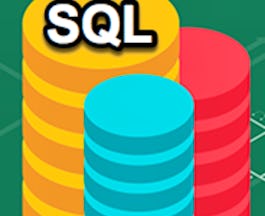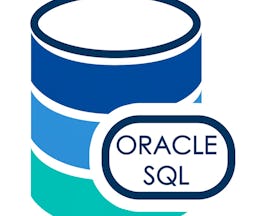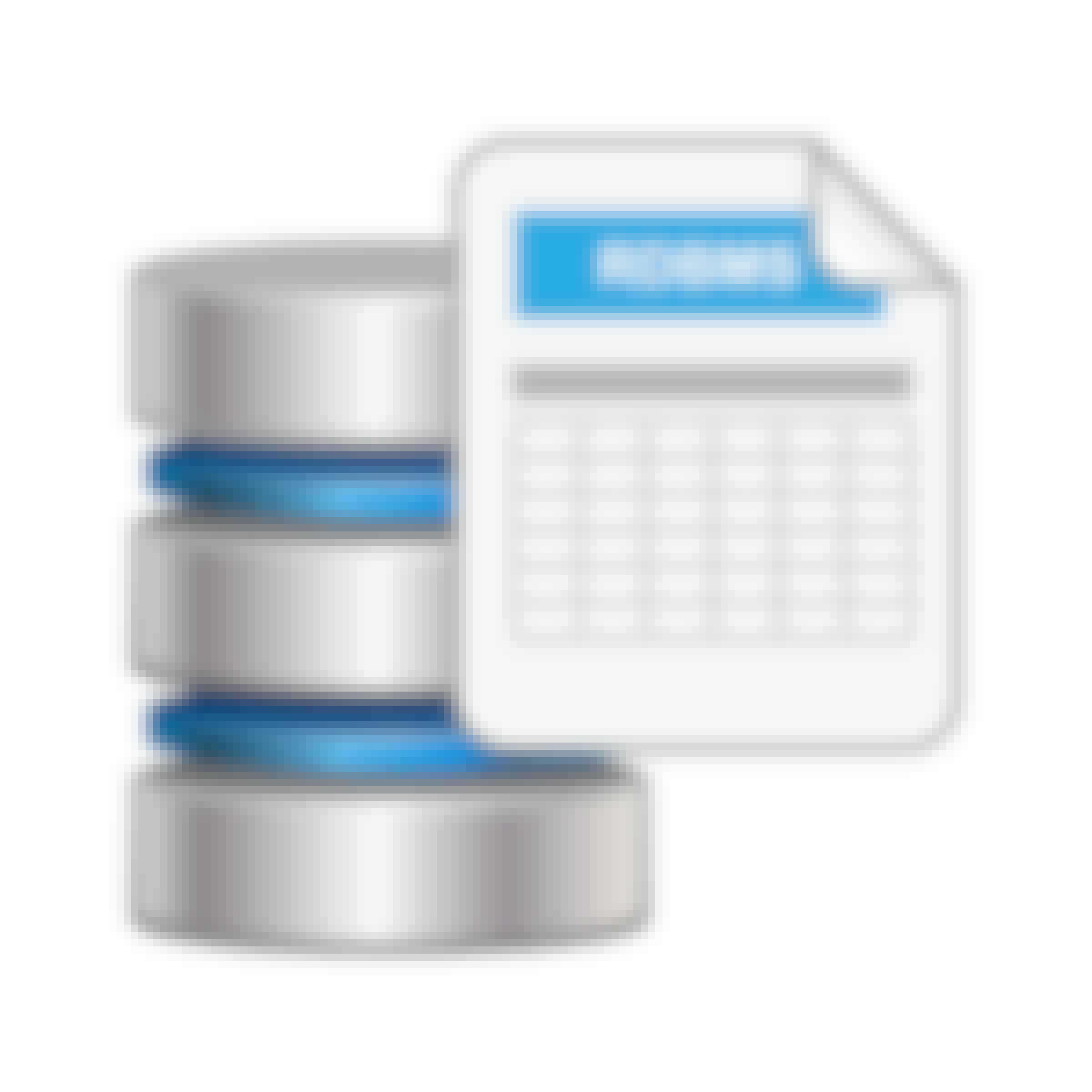Filter by
The language used throughout the course, in both instruction and assessments.
Choose the Database Course That Aligns Best With Your Educational Goals

Skills you'll gain: SQL, Databases, Statistical Programming, Python Programming, Database Design, Programming Principles, Algorithms, Computer Science, Big Data, Software Testing, Application Development, Collaboration, Communication, Computer Programming, Data Analysis, Data Management, Data Model, Data Structures, Data Warehousing, Database Administration, Database Application, Database Theory, Django (Web Framework), Javascript, Leadership and Management, Linux, Problem Solving, Project Management, Software Engineering, Software Engineering Tools, Tableau Software, Tensorflow, Web Development

Skills you'll gain: Python Programming, Computer Programming, Data Analysis, Data Management, Data Structures, Database Application, Database Design, Databases, SQL, Cloud Computing, IBM Cloud

Skills you'll gain: Databases, SQL, Database Design, Database Administration, Database Application, Database Theory

Skills you'll gain: Data Management, Databases, Database Administration, Extract, Transform, Load, Big Data, SQL, Python Programming, Apache, Database Design, Distributed Computing Architecture, Data Architecture, Database Application, NoSQL, Data Structures, Data Model, Data Warehousing, Cloud Computing, Database Theory, Data Engineering, Machine Learning, Data Visualization, Computer Programming, IBM Cloud, Data Mining, Data Analysis, Leadership and Management, Process Analysis, Kubernetes, PostgreSQL, Problem Solving, Business Intelligence, Data Visualization Software, Linux, Network Security, Statistical Programming, Data Science

University of Michigan
Skills you'll gain: SQL, Databases, Database Design, PostgreSQL, Database Application, Data Management, Database Theory, Data Structures, Python Programming, Data Architecture, NoSQL, Data Model, Natural Language Processing

LearnQuest
Skills you'll gain: Database Administration, Database Application, Databases, SQL, Data Management, Database Design, Data Analysis, Data Structures, Database Theory, Data Architecture, Data Model, Design and Product

Google
Skills you'll gain: Data Analysis, SQL, R Programming, Business Communication, Spreadsheet Software, Business Analysis, Data Visualization, Data Management, General Statistics, Big Data, Communication, Computer Programming, Data Science, Data Visualization Software, Databases, Exploratory Data Analysis, Extract, Transform, Load, Leadership and Management, Microsoft Excel, Problem Solving, Small Data, Statistical Programming, Tableau Software

University of Colorado Boulder
Skills you'll gain: Databases, Data Management, SQL, Database Design, Database Administration, Data Model, Database Theory, PostgreSQL, Critical Thinking, Database Application, Problem Solving, Data Analysis, Data Structures, Big Data, NoSQL, Conflict Management, Data Science, Data Warehousing

Universidad Nacional Autónoma de México
Skills you'll gain: Databases, SQL, Business Intelligence, Data Warehousing, Leadership and Management, NoSQL

Skills you'll gain: Data Management, Database Administration, Database Application, Database Design, Databases, SQL, Data Architecture, Data Structures, Data Model, Database Theory, PostgreSQL

Skills you'll gain: SQL, Statistical Programming, Data Management, Database Administration, Database Theory, Databases, Leadership and Management

Google Cloud
Skills you'll gain: Databases, Cloud Computing, Google Cloud Platform, Data Management, Cloud Platforms, Database Administration, Database Application, SQL, Cloud Infrastructure, Cloud Storage, Data Analysis, Google App Engine, Kubernetes, PostgreSQL
In summary, here are 10 of our most popular database courses
- Meta Database Engineer: Meta
- Databases and SQL for Data Science with Python: IBM
- Introduction to Databases: Meta
- IBM Data Engineering: IBM
- PostgreSQL for Everybody: University of Michigan
- Oracle SQL Databases: LearnQuest
- Google Data Analytics: Google
- Databases for Data Scientists: University of Colorado Boulder
- Database systems: Universidad Nacional Autónoma de México
- Introduction to Relational Databases (RDBMS): IBM










